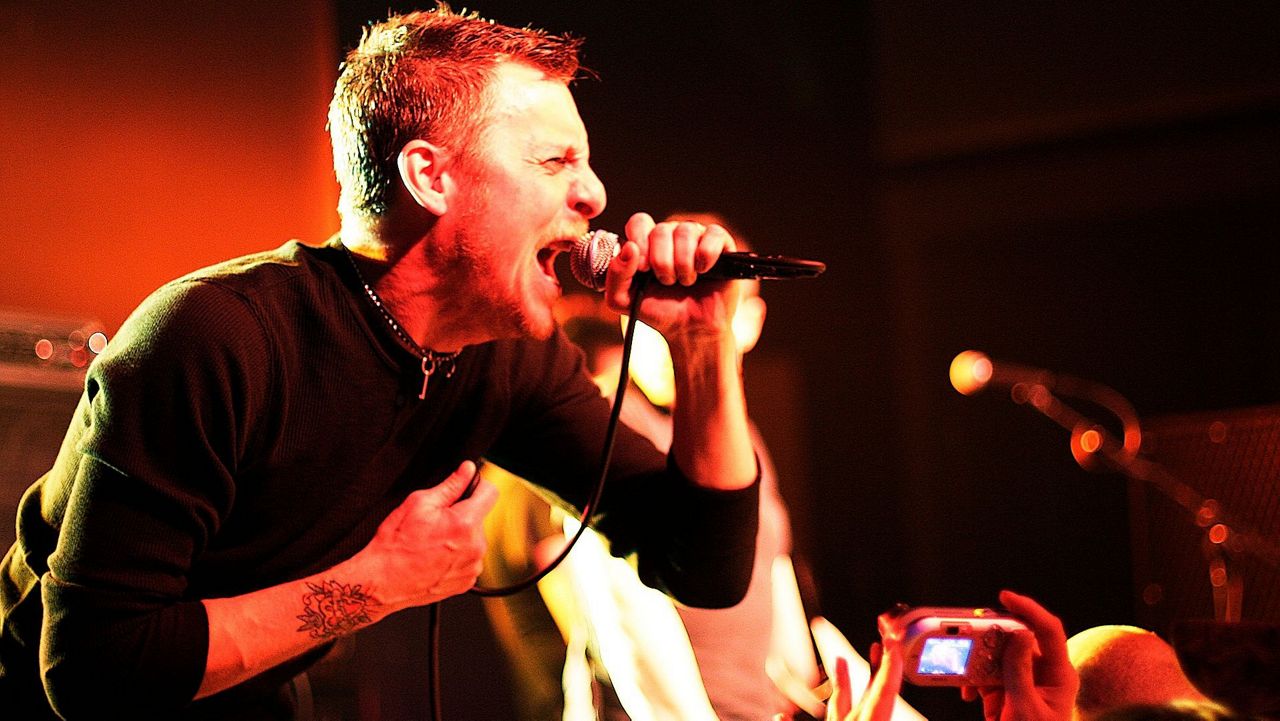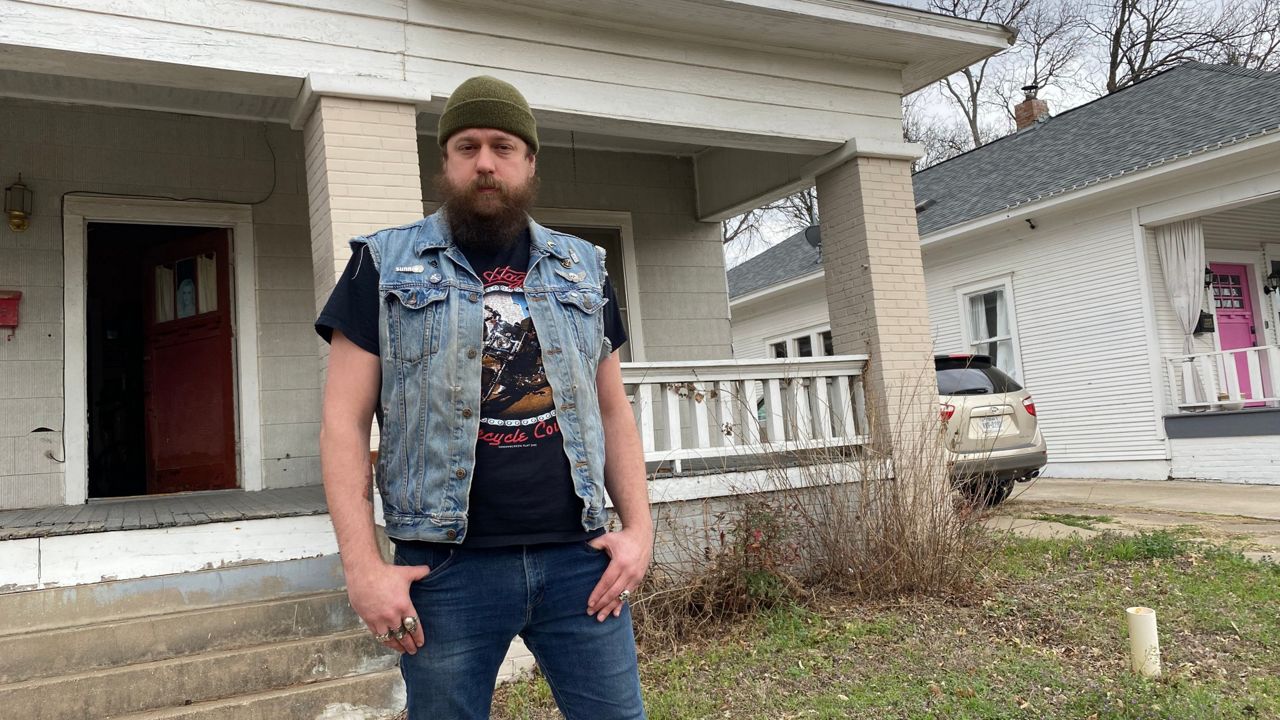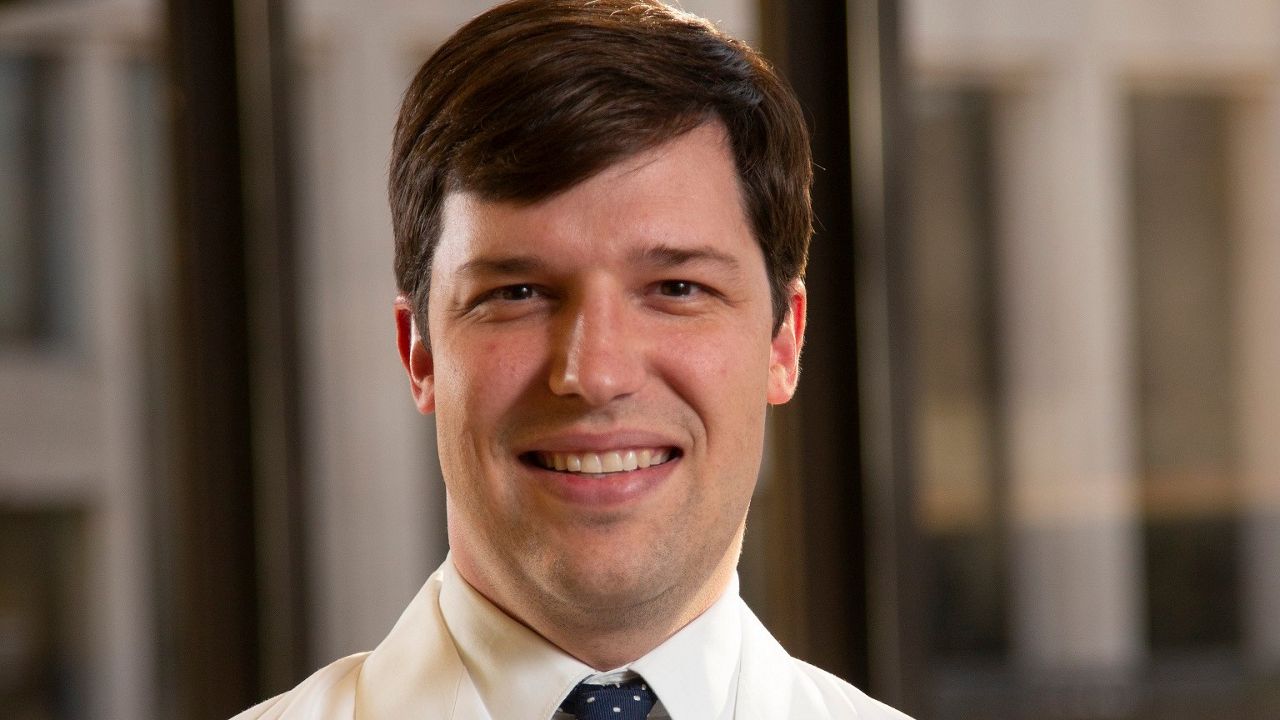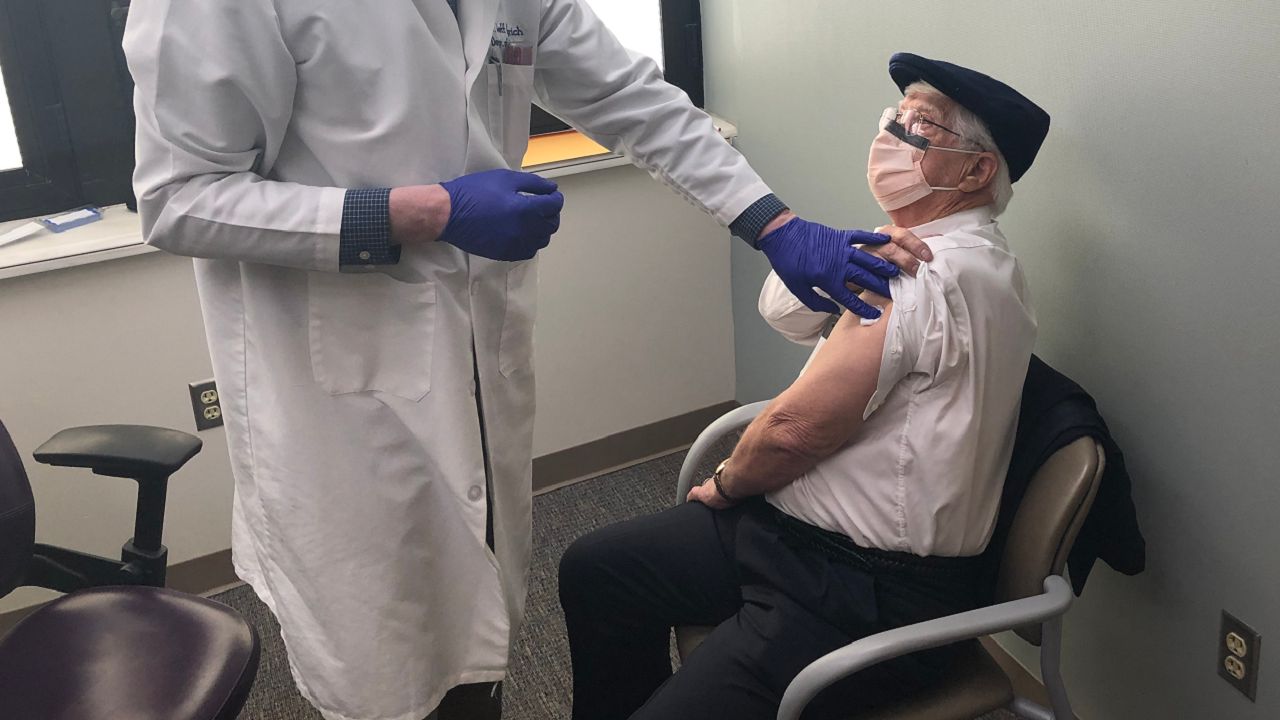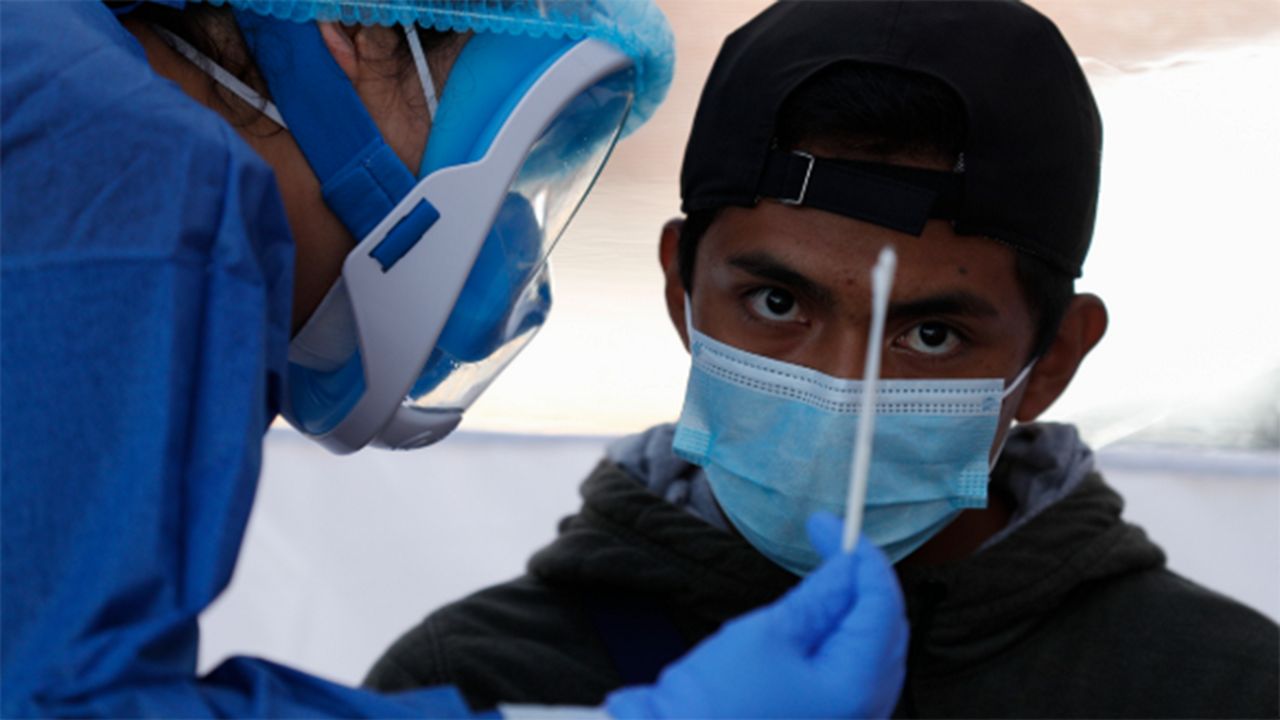FORT WORTH, Texas — Vaden Lewis didn’t hold back venting his frustration with people who refuse to be vaccinated. The frontman for The Toadies recently announced the Fort Worth-based four-piece would be postponing its national tour — roughly 50 shows — over COVID concerns. This most recent tour was a rescheduled version of one that was first pushed back in 2020.
“We were hoping that people wouldn't be so stupid about this vaccine, and would take the vaccine,” he said. “Then people were stupid about the vaccine, so we can't go to work. F—k people who don't get vaccinated. I'm sick of it.”
Lewis isn’t alone in his feelings toward those he believes aren’t doing enough to stop the spread of COVID-19. The virus has hit the music and entertainment industries particularly hard, as concert venues that only just reopened a few months ago are now left to wonder what the future holds.
The country has entered the fourth wave of the pandemic — or fifth, depending on which expert you ask. As the vaccination campaign lags and the contagious delta variant spreads, cases and hospitalizations are at their highest since last winter. COVID-19 deaths, too, are on a steady incline.
The concert industry had hoped that this summer would mark its high-decibel rebound after being shut down for more than a year by the pandemic. It started promisingly, with restrictions being eased and fans snapping up tickets, but as the spread of the highly contagious delta variant has accelerated in recent weeks, an ominous cancellation blotter has begun to build up.
The pileup of bad news, along with fearful chatter among artists and touring workers on industry back channels, has led to what many in the business described as a confusing and even chaotic situation over whether — and how — to proceed.
For those moving forward, a loose consensus has taken shape that fans must provide proof of vaccination or at least a negative test. But anecdotal reports suggest that the rigor of vaccine checks can be lacking, and the question of who bears responsibility for setting and enforcing those rules — especially when governments in major markets like Texas oppose such mandates — remains a matter of debate.
Last month, Jason Isbell, a singer-songwriter with decades of critical admiration, announced that attendees of his current tour must show proof of vaccination or a negative test.
Isbell’s decision created a maelstrom of criticism after he announced the restrictions at his Fort Worth show. After changing venues to Billy Bob’s Texas, online critics lobbed harsh Tweets and social media posts toward both the artist and venue.
Lewis, who acknowledged everyone in his band is vaccinated, said he doesn’t begrudge any musician who continues to tour.
“I don't regret anybody trying to make a living,” he said. “It sucks that you can't do it safely. That was our reasoning."
“Part of the reality of this for us is that we just couldn't see a viable way forward where we have nine human beings in a metal tube for two months, breathing the same and living together and not getting sick,” he continued.
Touring provides the bulk of income for most artists, the majority of whom have not performed live in a year and a half. Booking and organizing a tour is expensive, and Lewis said he and his bandmates canceled the tour early enough to avoid some of the costs, but the group is still out some money. Had they gone on tour and had to cancel because a band member caught the virus, the financial impact could have been devastating.
“It takes a lot to get a tour going,” Lewis said. “You don't just jump in a car and go. We were able to cut our losses a little bit on that end by calling it when we did. I'm glad we did because things just keep getting worse.
“And then if we had gone on tour, what if somebody falls in the crowd and breaks their arm,” he continued. “There's not any room at the E.R. because it's full of people who didn't get vaccinated."
Live Nation and AEG Presents, the two global companies that dominate the business, have each announced that, by October, most venues and festivals they control in the United States would require vaccinations or negative tests for entry. Those decisions were applauded throughout the industry, but there are gray areas.
Artists that have touring deals with those companies pass through plenty of venues that are out of their control. (Live Nation set “best practices” for artists to request vaccination mandates at third-party spaces.)
In the case of AEG Presents’ policy, it applies to festivals like Coachella and clubs like Brooklyn Steel in New York — but not to larger venues like the Staples Center in Los Angeles, an arena owned by AEG Presents’ parent company, AEG, which controls sports, entertainment and real estate assets.
“Just a few weeks ago, we were optimistic about where our business, and country, were heading,” Jay Marciano, the chairman of AEG Presents, said in a statement. “The delta variant, combined with vaccine hesitancy, is pushing us in the wrong direction again.”
Concert promoters, like other arts executives, are hoping that velvet ropes of vaccination requirements around cultural events can serve as an incentive for fans to get the shot. In a survey of attendees at Lollapalooza, which required proof of vaccination or a negative test, 12% said the festival was the motivation for them getting vaccinated, with many under age 30.
Lollapalooza, which drew around 400,000 people over four days in Chicago, has been seen as a test case for large-scale public events, and the city’s mayor, Lori Lightfoot, faced criticism for letting the festival go on at full capacity. But according to data released by the city on Thursday, infection rates were very low — four in 10,000 vaccinated people, and 16 in 10,000 unvaccinated ones, reported testing positive in the weeks since the festival opened.
Despite the promising results from Lollapalooza, a petition to cancel the Austin City Limits Music Festival has reached more than 2,300 signatures.
Other high-profile acts have also decided to cancel gigs over the last few weeks. Acts including BTS and Nine Inch Nails have canceled stadium and festival headline dates. Live events company AEG Presents canceled the New Orleans Jazz & Heritage Festival. Garth Brooks yanked five stadium gigs and country duo Florida Georgia Line nixed its tour. Neil Young bowed out of Farm Aid. Stevie Nicks preemptively backed out of several planned headline gigs; the Pixies canceled their fall tour and festival dates. The metal band Korn rescheduled dates on its summer tour after singer Jonathan Davis tested positive for COVID-19; KISS postponed its tour after Gene Simmons and Paul Stanley contracted the virus.
“When originally planned, these shows were intended to be a cathartic return to live music,” Nine Inch Nails wrote on social media announcing the cancellations. “However, with each passing day it’s becoming more apparent we’re not at that place yet.”
Artists like Lewis are stuck in a holding pattern — and completely helpless as they watch the COVID numbers soar, while discourse around the topic of masks, vaccines, and other pandemic-related issues become increasingly tribal and vitriolic.
The Toadies still have some shows on the books in November, but Lewis couldn’t say whether the band will take the stage.
"We'll just have to see where we are when we get a little bit closer to those dates,” he said. “I really hope so. I mean, I love to play. I like to do my job, and it makes money and makes people happy. I'd love to be able to go do it again at some point.”






